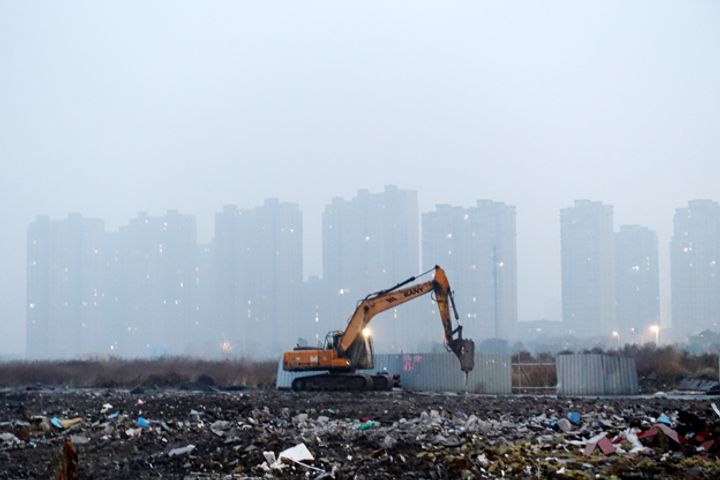 China's Local Authorities to Earn USD998 Billion From Land Use Rights This Year
China's Local Authorities to Earn USD998 Billion From Land Use Rights This Year(Yicai Global) March 7 -- China's local authorities could earn as much as CNY6.7 trillion (USD998 billion) from allocating usage rights for state-owned land this year, according to the Ministry of Finance.
That figure is about 3 percent higher than last year, when income from land rights expanded 23.8 percent, according to a budget report published during the Two Sessions, the concurrent simultaneous annual meetings of China's national legislature and top political advisory body. The sessions began late last week and typically last around two weeks.
Alongside tax income, revenue from land use rights is the most important source of earnings for local Chinese governments, so as Beijing looks to cut taxes and lower corporate fees nationwide, regional authorities will become even more dependent on the money they generate from land.
At least 22 Chinese provinces are expecting slower growth from government funds this year. Based on budget reports, many of these believe that stricter regulation over the property market is leading to uncertainty in the land use market.
The slower growth in land use income this year is largely down to falling revenue in China's biggest cities. Some 40 of its tier-one and tier-two metropolises earned a combined CNY252.6 billion (USD37 billion) from land use rights in January, down 15.4 percent on the year and a 32.4 percent slump from December, according to data from Centaline Property Agency.
China will retain control over its real estate market and continue to make adjustments, one analyst told Yicai Global. Developers will face greater financial pressure and become increasingly cautious about acquiring land, as can be seen from the rising number of unsold parcels, he added.
Variations in the real estate market have often rendered the finance ministry's predictions inaccurate, so it remains to be seen just how much local authorities will collect from land use rights. The ministry forecast 5 percent growth to CNY5.5 trillion last year, but the figure actually expanded by nearly a quarter to CNY6.5 trillion.
Editor: James Boynton